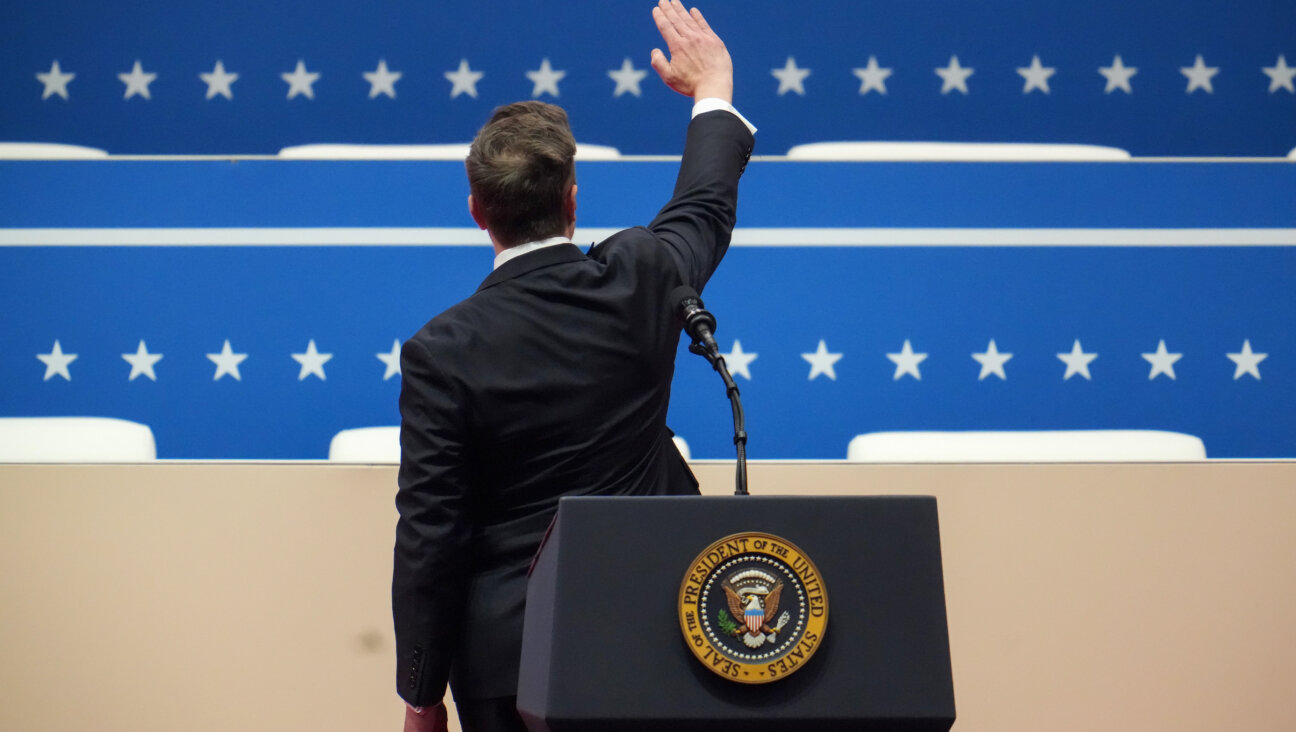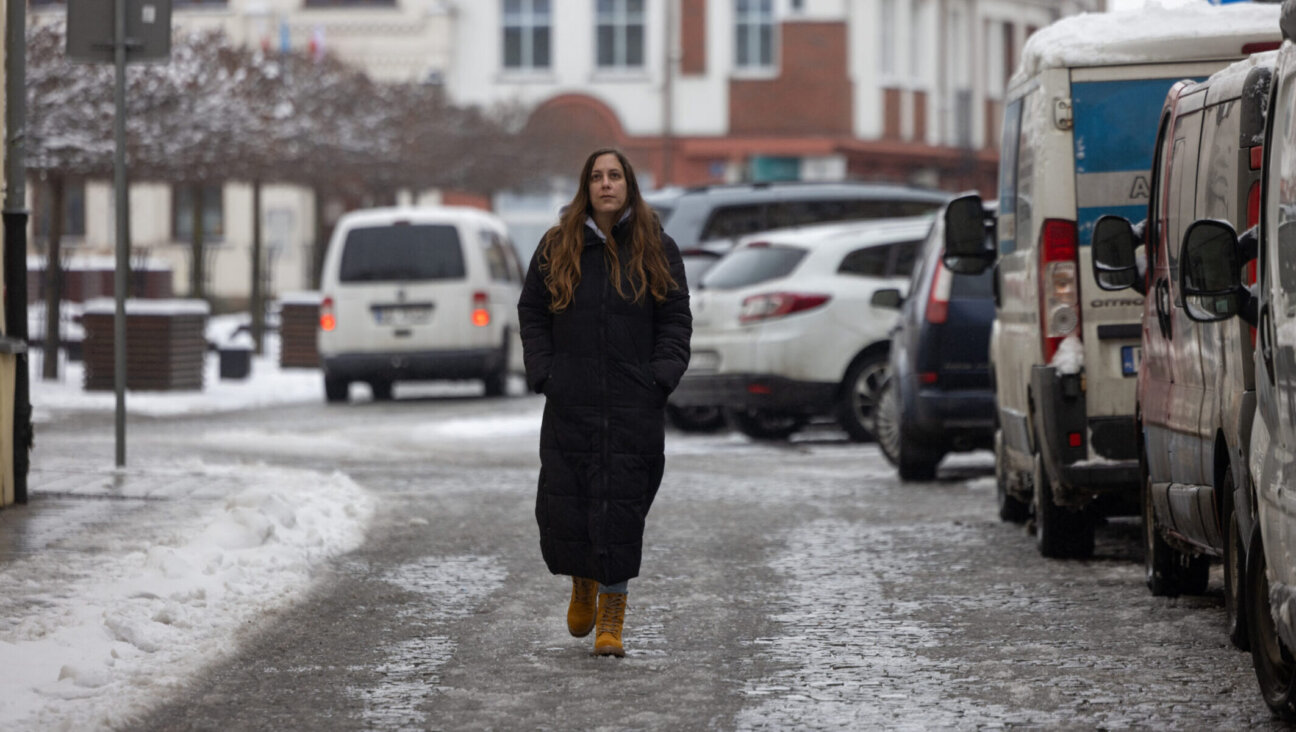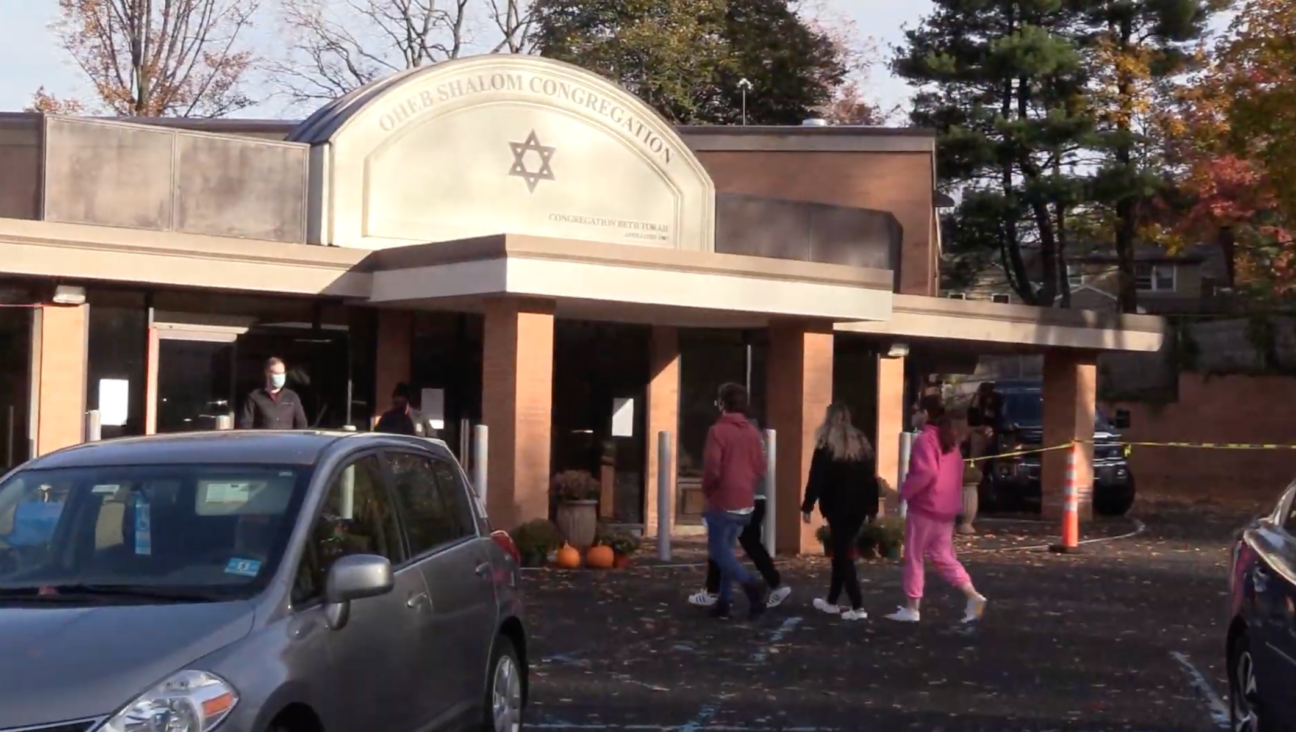BDS movement targets Standing Together over ‘normalization’
A wing of the international boycott movement said that Standing Together, one of the leading voices in Israel opposed to the war in Gaza, sought to ‘whitewash Israel’s ongoing genocide’
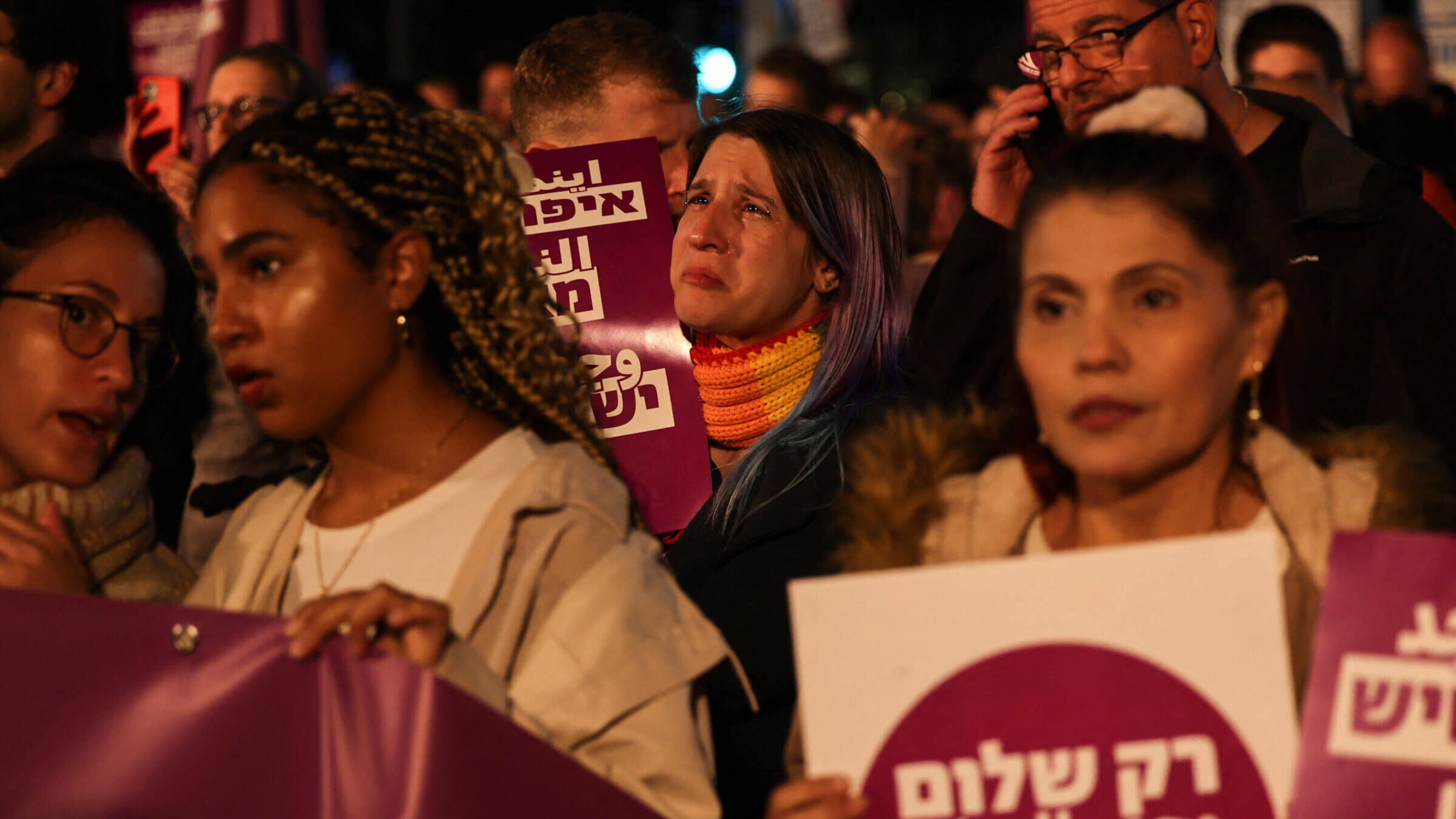
A demonstration organized by Standing Together, an Israeli-Palestinian peace movement, to demand a cease-fire in the ongoing war in Gaza. A wing of the global boycott movement targeting Israel accused the group of “normalization” Thursday. Photo by Getty Images
A wing of the Boycott, Divestment and Sanctions movement targeting Israel set its sights on Standing Together, a leftist Israeli-Palestinian group that has led opposition to the war in Gaza within Israel.
In a statement Thursday on the official website of the BDS movement, the Palestinian Campaign for the Academic and Cultural Boycott of Israel (PACBI) wrote that Standing Together was “an Israeli normalization outfit that seeks to distract from and whitewash Israel’s ongoing genocide in Gaza.”
Standing Together said it did not have an immediate comment on the call for “conscientious people and groups around the world refrain from engaging with this organization.”
But the move sparked puzzlement on social media.
“This is kind of a wild thing to boycott,” Talia Ringer, a professor at the University of Illinois, wrote on Twitter. “This is the primary movement within Israel pushing for a cease-fire right now.”
Dueling views of group
The PACBI statement said that Standing Together places equal blame for the conflict on Israelis and Palestinians and “evades discussion on the moral and legal responsibility of states, institutions and corporations to end their respective complicity in Israel’s system of injustice.”
Some objected to this characterization of the group, which has spoken out against Israeli settlements in the West Bank, helped lead the “anti-occupation bloc” during the protests against judicial reform in the country and faced a police crackdown for leading anti-war protests in Israel following Hamas’ Oct. 7 terrorist attack.
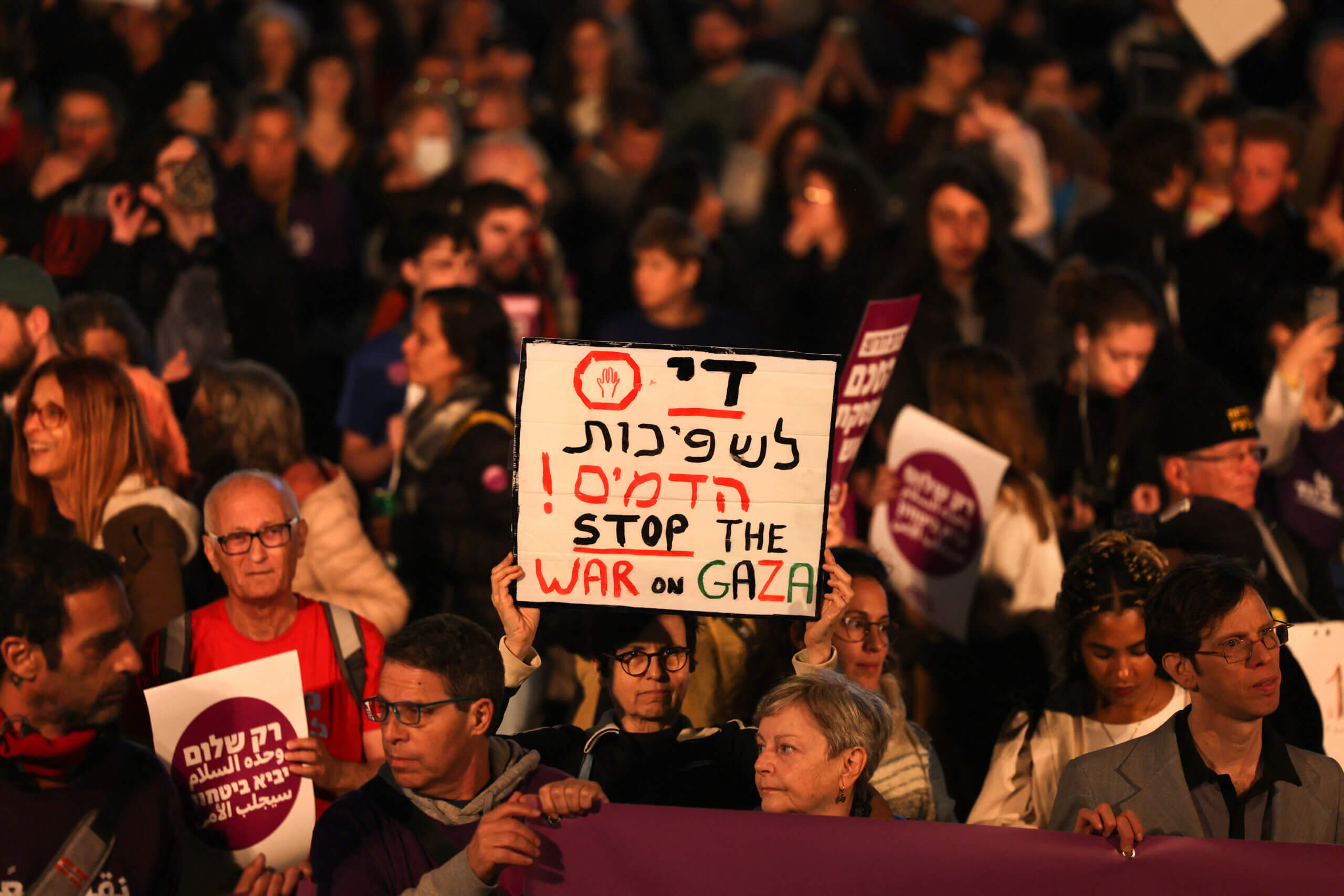
But the group, which is composed of both Jewish and Arab Israelis, has also been welcomed into some mainstream Jewish spaces that have turned a cold shoulder to other left-wing Israeli groups, like B’Tselem, which has campaigned internationally against what it describes as Israeli “apartheid.”
Leaders of Standing Together, which also goes by its Hebrew name Omdim Beyachad, have toured the U.S. and spoken at numerous American synagogues since Oct. 7. Sally Abed, one of the group’s leaders, was interviewed this month by Fathom, a right-leaning Jewish magazine.
Tensions on global left
Several top officials with the group also signed on to an October letter that expressed frustration with the global political left’s “inadequate response” to violence against Israelis by Hamas.
“Hamas is a theocratic and repressive organization that vehemently opposes the attempt to promote peace and equality,” the letter stated. “Thus the inclination of certain Leftists to react affirmatively to its actions is utterly absurd.”
But its leadership has also been a rare element of Israeli society speaking out against the war and in favor of a cease-fire. Uri Weltmann, an organizer with the group, warned in advance of Israel’s October ground invasion of Gaza that the army’s evacuation orders “amount to an act of ethnic cleansing, as this will surely bring a humanitarian catastrophe.”
It is not clear whether PACBI’s call for a boycott of Standing Together has the approval of the full BDS National Committee, which directs the global boycott campaign. The committee has been riven by various divisions in recent years, including criticism from some more radical groups after it disavowed a controversial map of Jewish and pro-Israel institutions in Boston two years ago.
A message from our Publisher & CEO Rachel Fishman Feddersen

I hope you appreciated this article. Before you go, I’d like to ask you to please support the Forward’s award-winning, nonprofit journalism so that we can be prepared for whatever news 2025 brings.
At a time when other newsrooms are closing or cutting back, the Forward has removed its paywall and invested additional resources to report on the ground from Israel and around the U.S. on the impact of the war, rising antisemitism and polarized discourse.
Readers like you make it all possible. Support our work by becoming a Forward Member and connect with our journalism and your community.
— Rachel Fishman Feddersen, Publisher and CEO














